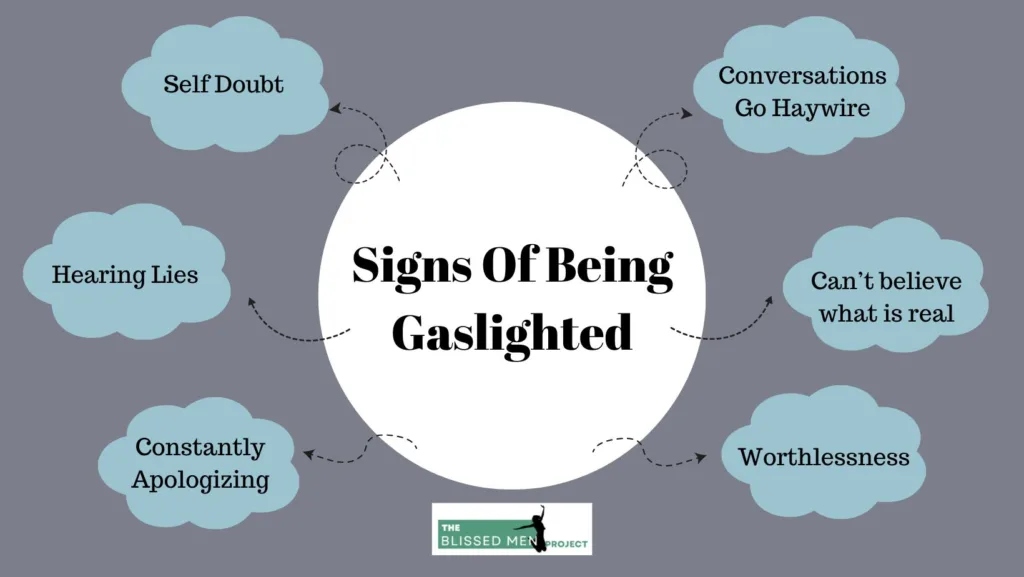Gaslighting has been a very popular term recently. Most of us do not know what it exactly means or how to identify being gaslit. The concept has very blurred lines and hence, it is very difficult to understand if what you are experiencing is gaslighting or not. In common terms, gaslighting is a form of emotional abuse that occurs when one person makes the other person believe that they are ‘crazy’, ‘seeing things’, ‘making things up’ or that no one will believe them. It doesn’t end there, it is when the other person actually believes whatever has been said. Gaslighting is not just present in romantic relationships but can be found anywhere within family, workplace or any other social institution. It is therefore hard for us to recognize the gaslighting examples among our daily lives.
According to a report published by Forbes, gaslighting involves an imbalance of power between the abuser and the person they’re gaslighting. Abusers often exploit stereotypes or vulnerabilities related to gender, sexuality, race, nationality and/or class. Gaslighting can impact a person’s mental health and make him /her prone to issues such as anxiety, depression, decreased self-esteem, Post Traumatic Stress Disorder (PTSD) etc.
What is Gaslighting?
Gaslighting is the psychological manipulation of a person usually over an extended period of time that causes the victim to question the validity of their own thoughts, perception of reality. It typically leads to confusion, loss of confidence and self-esteem, uncertainty of one’s emotional or mental stability, and a dependency on the abuser.
The term ‘Gaslight’ was coined from George Cukor’s 1944 classic film of the same name. The film portrays abuse and manipulation within a marriage. It further highlights the abuser’s refusal to acknowledge wife’s realities in the relationship.
Signs of Gaslighting

-You are constantly self doubting your abilities and decisions
-You often notice your partner/abuser lying
-You are always apologizing for everything
-You have started questioning your realities and perception.
-All the conversations with your partner go haywire and in a direction that ultimately blames you.
-You feel worthless.
Types of Gaslighting
According to the National Domestic Violence Hotline, gaslighting can be of four types:
Type 1 -Countering: Here the abuser questions your memory.
Type 2 -Withholding: The abuser does not listen to your conversation, saying he/she doesn’t understand making you feel stupid.
Type 3 -Trivializing: The abuser belittles how you feel or whatever you do.
Type 4 -Denial: The abuser will never take responsibility for their actions or mistakes.
Why do People Gaslight?
Usually the people who gaslight are very close to our lives which makes us wonder about their intentions or doubt if they could ever do anything to harm us. Many researches prove that people with Narcissistic Personality Disorder (NPD) usually show signs of gaslighting. Here are few possible reasons of gaslighting by a person with NPD:
-They require excessive self-admiration.
-They expect to be recognized with exaggerated levels of achievement, displaying signs of high self-importance.
-They can take advantage of others around them to achieve their goals.
-They are preoccupied with a sense of perfection in everything and would do anything to achieve it.
-They lack empathy.
Gaslighting Examples To Look Out For
It is often difficult to identify if you’re being gaslit. Here are some gaslighting phrases to notice :
1. ‘You’re being Crazy’:
One of the most known signs of gaslighting is when the other person is trying to doubt everything that you say or feel. The worst is when you actually start believing that you have actually lost your sanity. Abuser also would be convincing to tell you that everyone around thinks you are crazy too. It is totally possible that the other people didn’t even say anything about you, it is just the abuser.
2. ‘This is all Your Fault’:
Blaming everything that happened wrong on the other person and never accepting their own mistake is another example of gaslighting. You might be also blamed for things that you never had any say in. Remember this is just a way for the abuser to brush off his/her own mistakes or mishaps on you. This is also a way of making you guilty for things that you never intended to do.
3. ‘I would never make that up’:
In a counter argument, the abuser might become self defensive and try to tell you that the person who is imagining things is you and not them. Here the abuser will make you question your own realities and say things delusional so confidently that you might actually start believing them.
4. ‘You are always confused’, ‘You have started forgetting things’:
Such statements aren’t just common in romantic relationships but also at the workplace. If your manager constantly says this to you, he/she is gaslighting. While anybody can face problems recalling something from the past, abusers, especially at the workplace, might use their power or position to say things to you in order to appear smarter than others.
5. ‘You seem like you can’t take new responsibilities or pressures’:
This is again a typical workplace gaslighting example. It is hard to identify this might look like a concern, while in reality this abuser’s way of telling that you are incompetent. Of course, you need to understand the intent of the person here, is it your work friend or someone who is well versed with your work situation like a manager. A good manager or leader uplifts or helps his/her subordinate, the last thing he/she would do is ask you to question your own competencies or capabilities on a regular basis.
6. ‘You are sensitive’, ‘I was just joking’:
Remember to notice the frequency of such statements from your partner/family member/manager. If it is too often, you are being gaslit. There is nothing wrong with being open to your own feelings. With statements like these, the abuser is trying to downplay or nullify your feelings. Once you start believing in statements like these, the abuser will start invalidating you as a person.
Ways to Deal with Gaslighting
Maintain distance:
This step is necessary not only for your mental peace but also helpful if you face physical symptoms such as panic attacks, irregular beating, irregular eating habits etc. Getting a distance from the abuser will provide you with a space to think and recover yourself. You can also try meditation or breathing exercises for relaxation.
Gather evidence:
Being gaslit might make you feel invalid and worthless. One way to deal with this is by keeping evidence of your achievements and high points in life. Looking back at them , you will know that there is nothing wrong with you and that you are great at what you do.
Set boundaries:
Make sure to set boundaries in your relationship with the person. Do not let the person go through your weaknesses or take advantage of your good heart. Make sure to also tell him/her what you are not okay with. For example, you can tell them clearly that it is not okay for them to use words like crazy for you. If they still continue their old ways, walk away.
Talk to others:
Most times, a person gaslighting you might have also blocked your way from the outside world. It is time to get back in touch with your friends and family. Share what you’re going through with multiple people and get their opinion. They will help you get out of this condition.

Get Support
As you know by now, Gaslighting is a type of mental abuse. This means that whatever you are feeling right now is because of being gaslit by the other person and this is not your fault. What can be done right now is to get away from the person immediately. The next thing is to seek help from a healthcare professional. In case you are unable to identify if this is gaslighting or not, talk to your friends, family or a professional who could let you know right away. With counselling and therapy, you can start to feel your normal self again. Remember, do not blame yourself for all that has happened to you.
Related Read:
5 Ways To Avoid Conflicts With Your Partner

